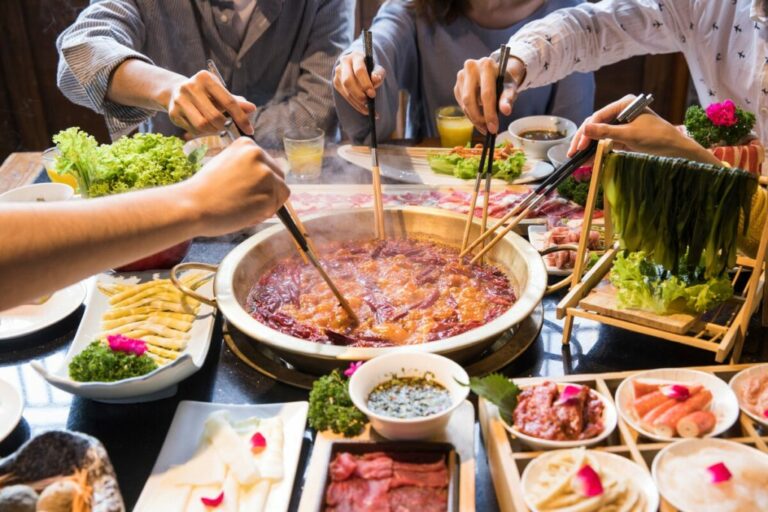Introduction: The Diversity of Chinese Cuisine
Chinese cuisine is one of the most diverse food cultures in the world, with a rich history dating back thousands of years. It is made up of eight distinct regional cuisines, each with its own unique flavors, ingredients, and cooking techniques. The food in China is not only an essential part of everyday life, but it is also a cultural and social highlight. Whether it is street food or fine dining, Chinese cuisine has something to offer for everyone.
Defining Signature Dishes in Chinese Culture
Chinese cuisine is known for its wide variety of dishes and flavors, but it can be challenging to define a single signature dish. In Chinese culture, signature dishes are those that are widely recognized and celebrated for their unique taste, cultural significance, and history. These dishes have become an essential part of the local food culture and are often considered national treasures. However, different regions and cities in China have their signature dishes, making it difficult to define a single dish as the quintessential Chinese cuisine.
Regional Variations and Beloved Classics
Each of the eight regional cuisines in China has its unique set of signature dishes and variations. For example, Sichuan cuisine is known for its spicy and flavorful dishes, such as Kung Pao Chicken and Mapo Tofu. Cantonese cuisine, on the other hand, is famous for its delicate flavors and dim sum dishes like Shrimp Dumplings and Char Siu Bao. While dishes like Peking Duck and Xiaolongbao have become beloved classics in Chinese cuisine, they are also known for their regional variations, such as the style of cooking or the type of sauce or filling.
The Impact of Migration on Chinese Cuisine
The migration of Chinese people to other countries has influenced the development and evolution of Chinese cuisine. In many cities around the world, Chinese restaurants offer a mix of traditional dishes and dishes that have been adapted to local tastes. For example, American-style Chinese food often includes dishes like General Tso’s Chicken and Crab Rangoon, which are not commonly found in China. The migration of Chinese people has also led to the emergence of fusion cuisine, which combines Chinese flavors with other cuisines like Japanese, Korean, or Thai.
The Role of History and Tradition in Creating Iconic Dishes
Many signature dishes in Chinese cuisine have a rich history and cultural significance. For example, Peking Duck has been served for centuries and was a favorite dish of the imperial family in ancient China. Similarly, Xiaolongbao, a type of steamed dumpling, originated in Shanghai in the 19th century and has become a cultural icon in China. These dishes have not only stood the test of time but have also become a symbol of Chinese culture and tradition.
The Influences of Other Cultures on Chinese Cuisine
Chinese cuisine has been influenced by other cultures throughout history, including Mongolian, Persian, and Indian cuisine. For example, the use of spices and seasonings like cumin, coriander, and turmeric can be traced back to the Silk Road trade route. Chinese cuisine has also been influenced by Western cuisine, with dishes like Sweet and Sour Pork and Fried Rice becoming popular in Western countries.
The Future of Signature Dishes in Chinese Cuisine
The future of signature dishes in Chinese cuisine is shaped by a combination of traditional recipes, modern culinary techniques, and changing consumer tastes. While classic dishes like Peking Duck and Xiaolongbao will continue to be popular, chefs are also experimenting with new ingredients and flavors, such as plant-based meats and fusion cuisine. As Chinese cuisine continues to evolve, new signature dishes will emerge, reflecting the changing tastes and preferences of consumers.
Conclusion: The Richness and Complexity of Chinese Cuisine
In conclusion, Chinese cuisine is a rich and complex food culture that has evolved over thousands of years. While it can be challenging to define a single signature dish in Chinese cuisine, there are many iconic dishes that are widely recognized and celebrated for their unique flavors and cultural significance. The diversity of regional variations and the influences of other cultures make Chinese cuisine a dynamic and exciting field for chefs and food enthusiasts alike. As Chinese cuisine continues to evolve, it will undoubtedly continue to surprise and delight diners around the world.

